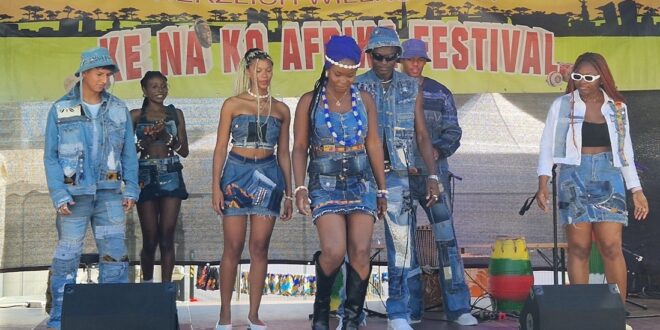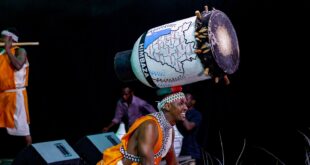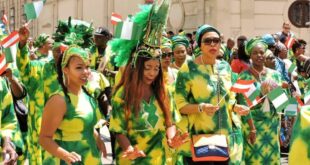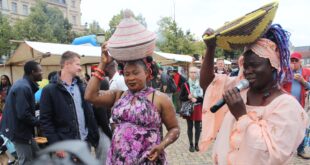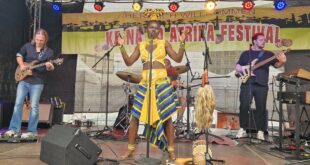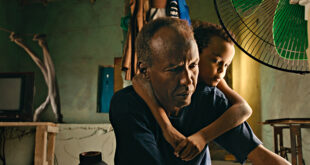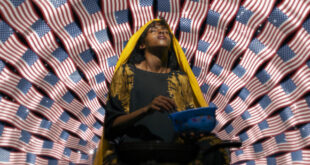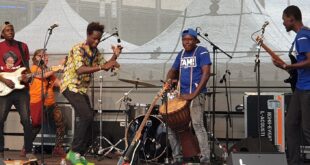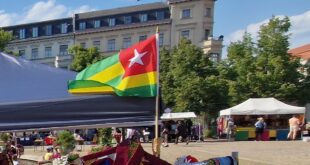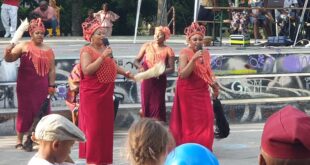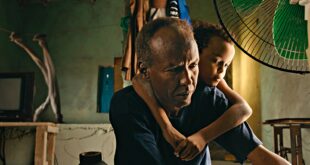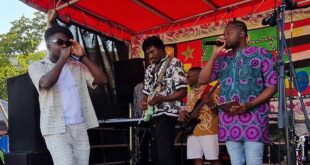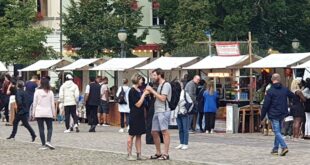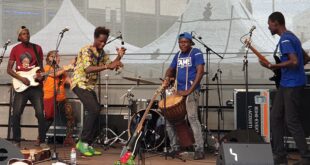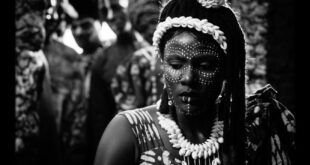The first Togo Festival in Germany (FESTOA), organized by Togo Goes On e.V., took place in Berlin on Saturday. The festival, which was held simultaneously with the annual Kenako Africa Festival at the Alexanderplatz, featured a diverse range of activities, including symposiums, a fashion show, a traditional masquerade performance, and a music concert.
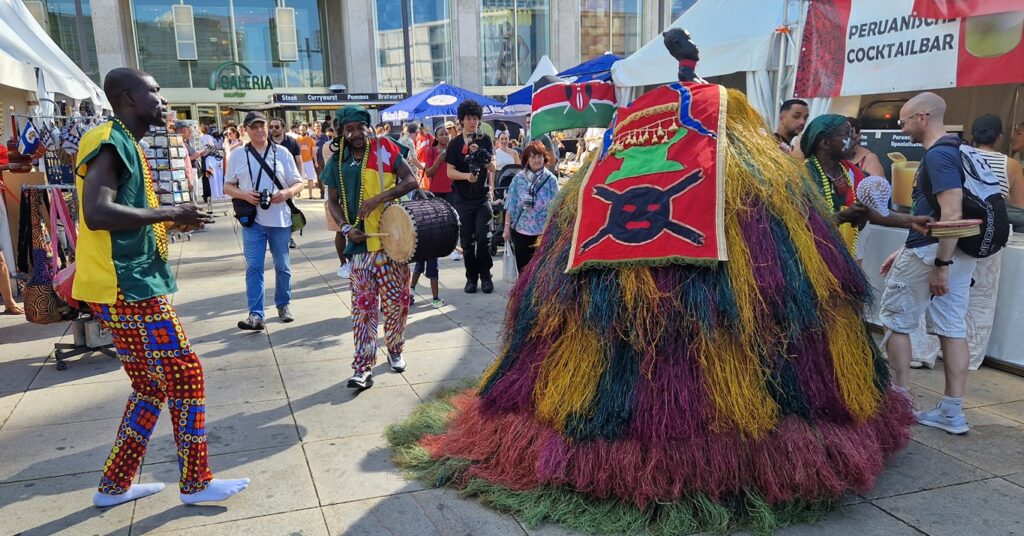
The venue of the festival was filled with visitors eager to witness the inauguration of this new celebration of Togolese culture in the capital city.
The festival commenced with a brief speech by Ameyo Dick*, the Executive Director of Togo Goes On e.V. She explained that the festival was created to promote Togo in Germany and to strengthen ties between the two countries.
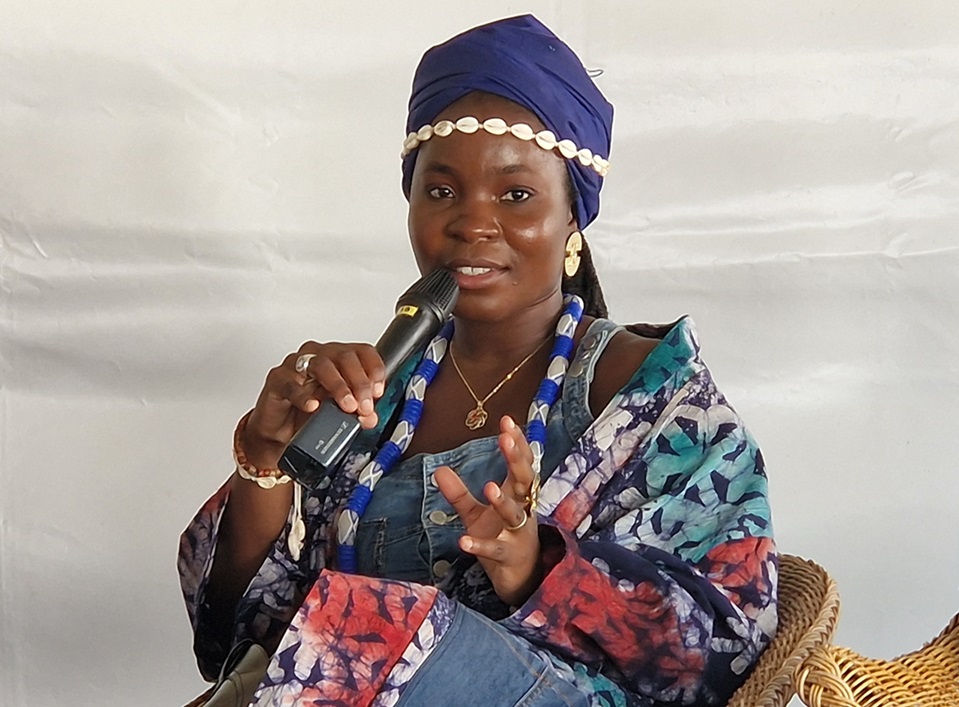
Following her speech, Mokpokpo Akpabli, who represented Ambassador Tchilabalo Abaki, Togo’s envoy in Germany, delivered a presentation on the history of Togo-Germany relations, which began with the colonization of Togo after the Berlin Africa Conference. The representative noted that while Togo’s infrastructure improved significantly under German colonial administration, the period was also marked by suffering and resistance of the Togolese people against their colonizers.
Describing the colonial era as a period with both positive and negative chapters, the envoy highlighted the severe human rights violations committed by Germans, which are often overlooked in historical discourse. He also pointed out the illegal removal of cultural artifacts from Togo, revealing ongoing discussions about initiating dialogue with Germany for their return.
The diplomat lamented the lack of awareness about the historic ties between Togo and Germany in Germany and called for closer economic relations, emphasizing Togo’s potential as a gateway to West Africa for German investors. He also extended an invitation to Germans to visit Togo and experience its natural and cultural riches.
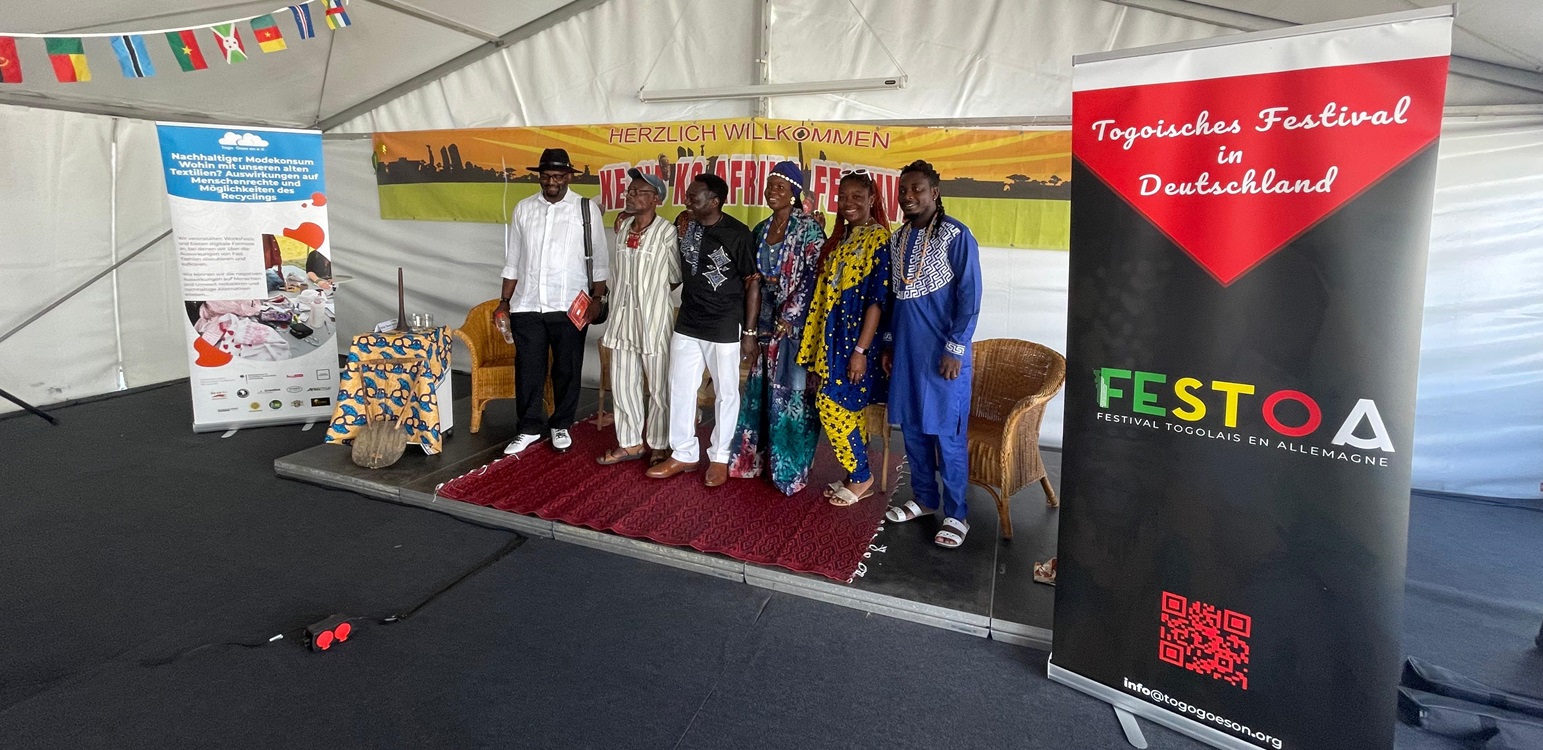
The festival’s second symposium focused on recent constitutional reforms in Togo, featuring a four-person panel discussion. The panelists explored the implications of the new constitution for the country’s future. Under the reformed constitution, the presidential election process was changed from a popular vote to being conducted by the parliament, a move that has sparked criticism.
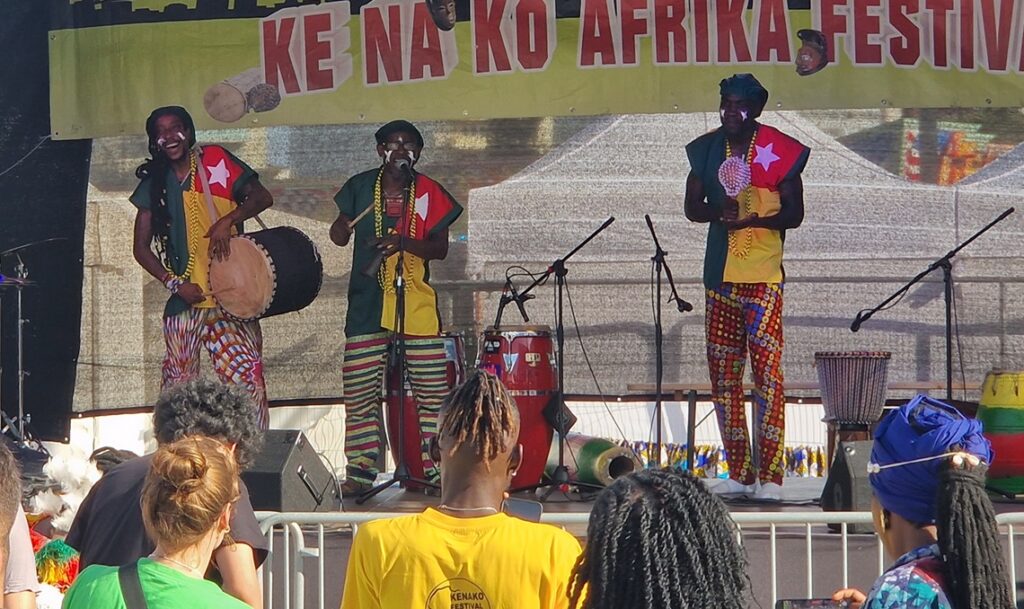
Ameyo Dick, wh provided insights into Togo’s political landscape, recounting its history from the onset of German colonization through to the military coup in 1963, led by Sergeant Étienne Eyadéma (later known as Gnassingbé Eyadéma). That event marked the beginning of a long period of dictatorship, which continued until Eyadéma’s death in 2005.
Dick, who is active in development cooperation and migration counselling, noted that while there has been some progress in freedoms of expression, press, and association since Faure Gnassingbé, Eyadéma’s son, took office in 2005, the political environment in Togo is still distinct from Western democracies. “There is no dictatorship in Togo, but there is also no democracy like it’s practiced in the West. However, there is peace and that is important,” she added.
Panelist Idiss Tawat Nsangou criticized the practice in West Africa of using constitutional amendments to extend the tenure of sitting presidents without holding popular referendums, arguing that this lacks democratic legitimacy. He also commented on the reluctance of some speakers to discuss Togo’s political situation during the panel discussion, suggesting it reflects the current state of freedom of expression in the country.
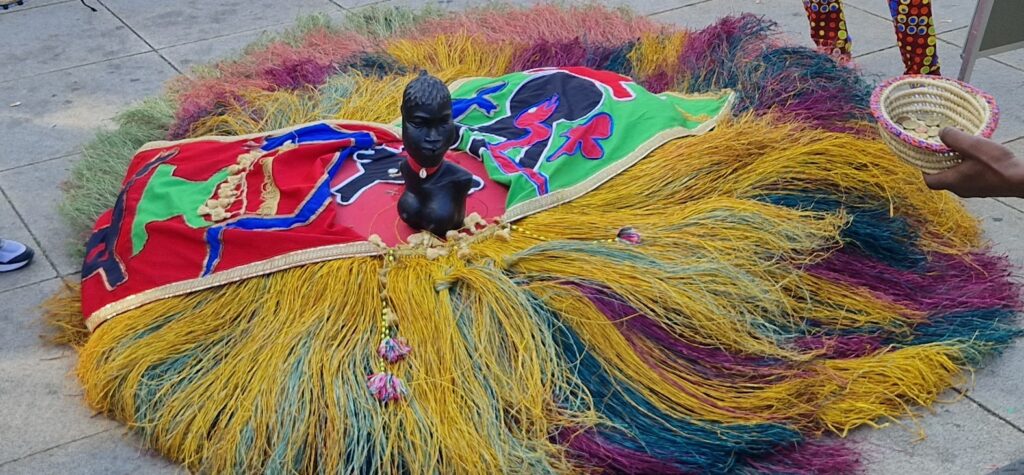
Following the discussions, the festival continued with a vibrant fashion show showcasing the creations of YOBI Design. A captivating masquerade dance transformed Alexanderplatz into an African village square, as performers and drummers animated the festival grounds. The day concluded with a dynamic music concert by Maobe, a drumming and percussion group, which provided a rousing finale to the event.
The organizers of the first Togo Festival can be proud of their achievement, having successfully introduced a new cultural event to Berlin. With the enthusiasm and interest generated by this inaugural edition, there is a strong foundation to build upon for an even bigger festival next year. The appetite for Togolese culture has certainly been whetted!
Femi Awoniyi
About Ameyo Dick
Ameyo Dick is the Executive Director of Togo Goes On e.V., an organization focused on development cooperation and migration counselling. She is also an entrepreneur, owning the fashion brand YOBI Design, and serves as the women’s representative at Berliner Aids-Hilfe e.V., advocating for women’s rights and health. Ameyo holds a Bachelor’s degree in Political Science from the University of Hamburg and a Master’s degree in Politics, Administration, and International Relations from Zeppelin University. Her work is characterized by a commitment to community empowerment and advocacy for women and migrants.
 THE AFRICAN COURIER. Reporting Africa and its Diaspora! The African Courier is an international magazine published in Germany to report on Africa and the Diaspora African experience. The first issue of the bimonthly magazine appeared on the newsstands on 15 February 1998. The African Courier is a communication forum for European-African political, economic and cultural exchanges, and a voice for Africa in Europe.
THE AFRICAN COURIER. Reporting Africa and its Diaspora! The African Courier is an international magazine published in Germany to report on Africa and the Diaspora African experience. The first issue of the bimonthly magazine appeared on the newsstands on 15 February 1998. The African Courier is a communication forum for European-African political, economic and cultural exchanges, and a voice for Africa in Europe.

